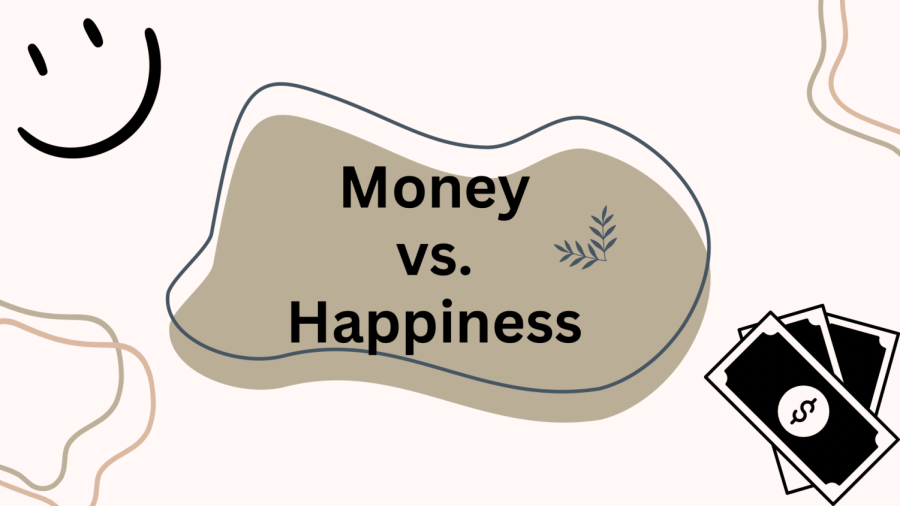Intrinsic motivation’s impact on professions and businesses
As teenagers enter the workforce and determine their majors and post-college plans, they must establish which career factors matter. Of course, people wish to live comfortably, but they must decide if they want to work high-paying jobs and put up with a high-stress environment. Understanding where money and happiness rank on their list of necessities can help determine which jobs will suit them.
May 16, 2023
In high school psychology classes, students learn about motivation. Their teacher describes the two motivation types: extrinsic and intrinsic motivation will affect businesses and the world’s future economy. However, money, an extrinsic motivator, does not drive everyone. Despite receiving lower pay, teachers continue to pursue an educational career. Employees feel comfortable and work diligently in professions they feel passionate about. Although, if corporations act strictly, they kill their employees’ intrinsic motivation.
Critics will frequently argue that new business practices help the economy flourish. Money runs the world, and people must earn money to survive and afford luxuries. Therefore, people believe work will thrive without self-expression.
“I think for me personally I would rather have a high-paying job that I don’t enjoy. If you make a lot of money, you can spend it on your happiness. You can spend it on vacations, better food, buy a dog and a therapist if you need it. You’ll only be miserable when working. when not working, you will [be happier],” magnet sophomore William Hein said.
Effective businesses have implemented easy-going environments to encourage productivity and satisfaction at work. Employers must stray away from regulations that prohibit employees from expressing their identities. Harsh environments can cause employees to feel unnoticed and leave, even if they love their career path. For example, limiting religious expression may strip employees from the sense of community desired in the workplace.
People will work for corporations that contribute to a group, place or upcoming change, rather than high-paying, low-impact jobs. Non-profit organizations succeed and receive additional societal recognition. People in these organizations will perform superiorly because they enjoy helping others, and their intrinsic motivation shines through. Wikipedia remains the most popular encyclopedia in the world. The encyclopedia consists of people who write and edit articles without financial compensation. Despite monetary rewards other companies offered, people who wrote articles out of their intrinsic motivation created a more successful encyclopedia.
This scenario exists in various other fields in the world, such as education and nursing. Their intrinsic desire to support a cause drives them, not their extrinsic desire for greenbacks. People should choose jobs they intrinsically appreciate; they should pursue a career that satisfies them over a job they resent.
“In terms of motivation, I think that they should take a lower-paying job that they do enjoy because if you have a job that you genuinely do enjoy you’re gonna look forward to it. Overall your happiness will definitely reflect in your work ethic and the product that you are [making] or whatever you’re doing. Also, overall you will be happier in different aspects of your life. If you are somewhere you don’t want to be and you’re miserable and it’s constant in ways of your mental health, emotions and attitude, it will affect a lot,” magnet sophomore Amarion Cummings said.
Poor business practices result in poor work results. People perform finer when they love a job and will continue to work in jobs filling their emotional needs: love and belonging. If employers cater to their workers’ intrinsic motivation, businesses will flourish. Moreover, if people prioritize joy over money when determining a career, they will never work a day in their lives and they will feel happier on a day-to-day basis.






